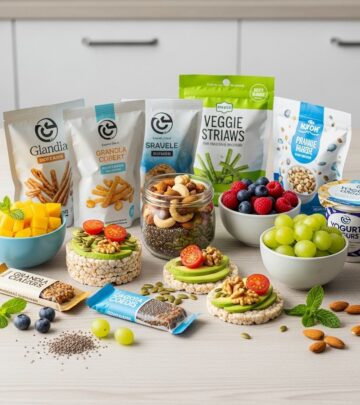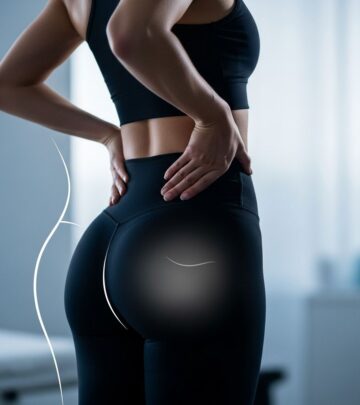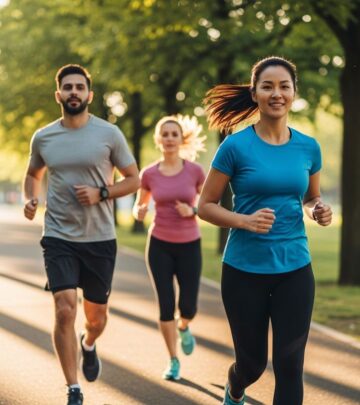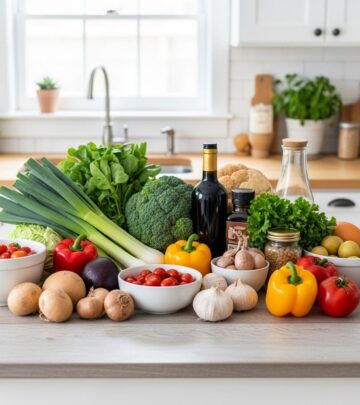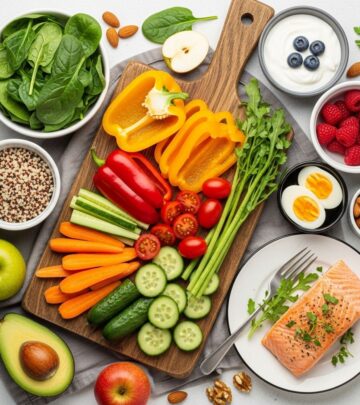What a Dietitian Drinks in a Day: Healthy Choices for Every Sip
Simple tweaks can transform everyday liquids into nutrient-rich refreshments.
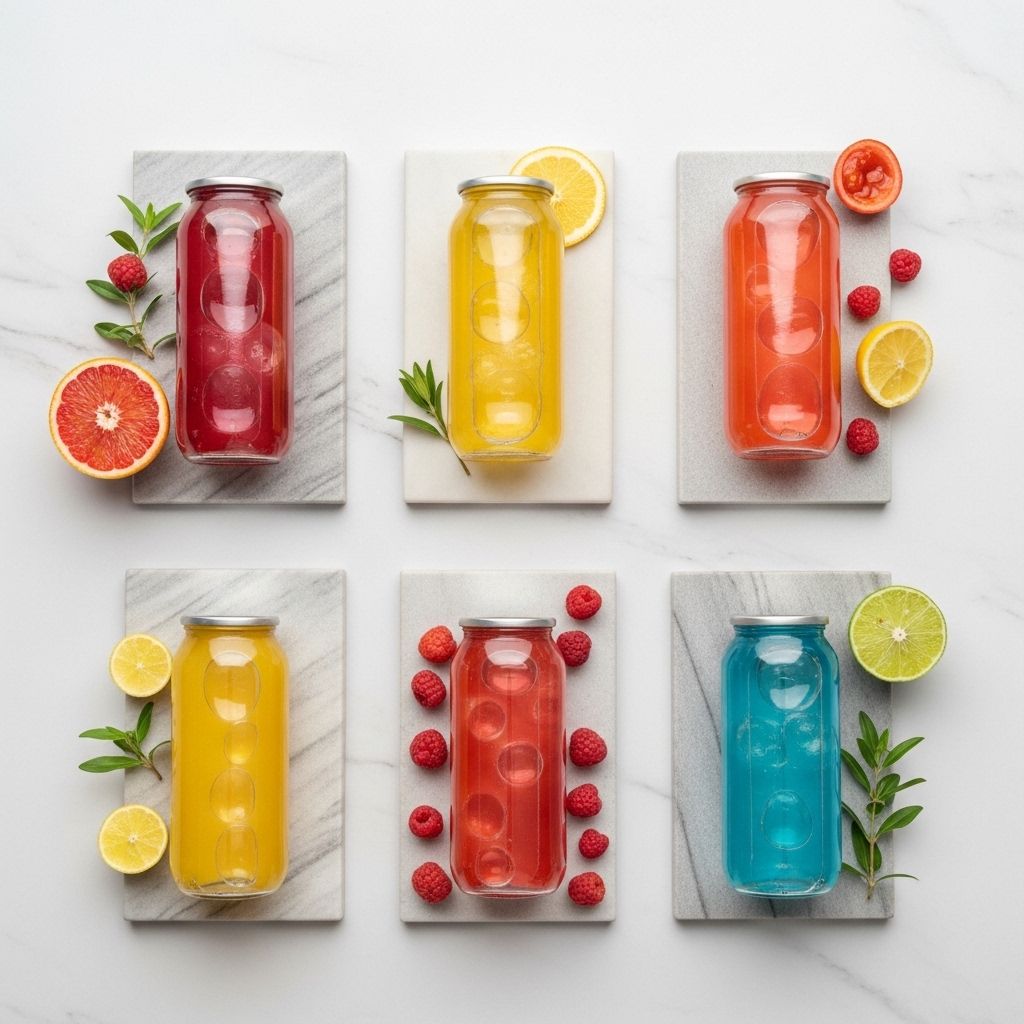
When it comes to nutrition, registered dietitians (RDs) offer a gold standard for evidence-based advice—including what to drink for optimal health. While food is often the first focus, beverages play a central role in hydration, energy, and overall well-being. Curious about how a nutrition expert fuels her body from morning to night? Here’s a look into the daily drink routine of a dietitian, with science-backed insights and actionable tips for everyone aiming to make healthier choices.
The Importance of Hydration: Why What You Drink Matters
Proper hydration is foundational to good health. Water supports digestion, regulates body temperature, lubricates joints, and even plays a part in cognitive function. Yet, many people struggle to drink enough or choose beverages that inadvertently undermine their goals. Dietitians prioritize hydration with purpose, incorporating nutrient-rich, low-sugar drinks that fit seamlessly into a balanced lifestyle.
Morning: Starting the Day Right
Mornings set the stage for the day’s energy, mood, and focus. RDs typically kick off their hydration before any caffeine by turning to the most fundamental beverage: water.
- First drink: A large glass of water, often immediately upon waking, to replenish overnight fluid losses.
- Some dietitians add a squeeze of lemon for flavor and a boost of vitamin C.
- Others use a slice of cucumber or a few mint leaves for variety.
Creating a cue—such as keeping a glass or bottle at the bedside—can reinforce this hydration habit. This simple act can boost alertness and kick-start metabolism for the day ahead.
Many RDs recommend pairing this first glass of water with other morning routines, a tactic known as habit stacking—for example, drinking water right after brushing teeth or before the first meal.
Recommended Water Intake: Myths and Facts
The classic advice is to aim for eight glasses (about 64 ounces) of water daily, but actual needs vary considerably based on age, sex, climate, activity level, body size, and even certain medical conditions.
| Factor | Impact on Hydration |
|---|---|
| Sex | Males usually need more due to muscle mass |
| Body weight | Larger individuals require more fluids |
| Climate | Hot/humid environments increase needs |
| Activity level | Active people, especially those who sweat, need extra |
| Medications | Some may increase/decrease fluid requirements |
One personalized rule of thumb some experts use: Divide your weight in half—then drink that many ounces of water per day. Remember, water-rich foods (like fruits and vegetables), as well as other drinks, also contribute to hydration.
Mid-Morning: Energizing with Coffee or Tea
After that first glass of water, many dietitians reach for a cup of coffee or tea. These beverages can be both enjoyable and beneficial, offering more than just caffeine.
- Coffee: Linked to a lower risk of type 2 diabetes, cognitive decline, and certain cancers, coffee is rich in chlorogenic acids and provides antioxidant benefits. The key is moderation—usually 1–2 regular (8–12 oz) cups a day—and minimal added sugars and unhealthy creamers. Classic options include a splash of low-fat or plant-based milk.
- Tea: Dietitians often opt for green or herbal teas. Green tea is notable for its catechins—powerful antioxidants—while herbal teas like hibiscus provide vitamin C, support immunity, and in some studies, help lower blood pressure. Both are usually caffeine-lighter than coffee and easy to enjoy with or without sweetener.
Avoiding high-sugar, dessert-like coffee drinks and oversized servings is crucial for making these beverages part of a healthy routine. Stick to mostly unsweetened or lightly sweetened choices.
Midday: Lunch Beverages and Beyond
Lunchtime is a good opportunity to balance hydration and add flavor with minimal calories or sugar. Dietitians often turn to:
- Sparkling water: Satisfying and calorie-free, with flavor from a splash of citrus or berries.
- Infused water: Combining sliced cucumber, ginger, lemon, or berries in cold water for a refreshing taste and additional vitamins.
- Coconut water: Selected for its electrolytes including potassium, sodium, and magnesium. Choose pure 100% coconut water (without added sugars). Ideal after workouts or outdoor activity as a hydrator.
Many dietitians discourage routine consumption of sugar-sweetened iced teas, sodas, or juices because of their impact on blood sugar and calorie load. Instead, opting for naturally flavored or unsweetened alternatives means you stay hydrated and energized without an unwanted sugar crash.
Afternoon: Recharging and Keeping Focus
The afternoon can bring an energy lull. Instead of reaching immediately for a second (or third) cup of coffee, RDs often choose nutrient-rich pick-me-ups, such as:
- Herbal teas: Like peppermint or chamomile, which support digestion and relaxation.
- Kombucha: A fermented tea beverage with probiotics, kombucha is naturally effervescent and lightly sour-sweet. Probiotics support digestive and gut health, and kombucha, when chosen with minimal added sugar and no artificial flavors, is a beneficial occasional sip that also satisfies a craving for something fizzy.
- Fruit slushies or smoothies: Blending fresh or frozen fruit with water and ice (for a slushy) or with yogurt/milk and greens (for smoothies) packs in hydration, fiber, and nutrients. Unlike juice, these beverages retain fiber and aid in sustained energy without sudden spikes and crashes. Protein powders or nut butters can add lasting fullness for an easy, portable snack.
Making healthy smoothies or slushies at home lets you control the ingredients, keeping added sugars to a minimum while maximizing nutritional value.
Post-Workout and Evening: Hydrating and Winding Down
After a workout or at the end of the day, fluid losses need to be replenished. Dietitians commonly recommend:
- Water: Still the gold standard for everyday hydration. Sipping frequently is preferable to large amounts at once.
- Coconut water: Particularly beneficial after intense or lengthy exercise due to the repletion of lost electrolytes.
- Herbal teas: Caffeine-free options help promote relaxation, encourage hydration, and signal that the day is winding down. Chamomile, ginger, or rooibos are excellent evening options.
Alcoholic drinks are minimized or avoided by most RDs on a regular basis, saved for special occasions rather than as part of a daily routine.
Dietitian’s Top Tips for Staying Hydrated and Making Healthier Choices
- Let thirst be your general guide. Unless medical advice indicates otherwise, your body’s signals usually work best.
- All beverages and water-rich foods contribute to hydration—milk, herbal teas, coffee, fruits (watermelon, oranges), and vegetables (cucumber, lettuce) all count.
- Flavor water naturally. Use citrus, unsweetened herbal tea bags, or infuse with berries, ginger, or cucumber for variety without added sugar.
- Bring a reusable water bottle, especially outdoors or to work, as a visible reminder to sip regularly.
- Balance caffeinated drinks (like coffee and black tea), since excess can have a diuretic effect and impact sleep quality.
- After intense physical activity or heat exposure, include electrolytes from coconut water, milk, or specialized sports drinks (as needed), but beware of products with too much added sugar or synthetic ingredients.
Frequently Asked Questions (FAQs)
How much water should I drink in a day?
For many adults, eight 8-oz glasses daily is a reasonable guideline, but your needs could be higher based on age, sex, body size, activity level, or climate. Aim to drink enough so that you rarely feel thirsty and produce clear or light-yellow urine. A more individualized estimate is to take your weight in pounds, divide by two, and drink that number of ounces per day.
Does coffee or tea count as water?
Yes. Both contribute to overall hydration, although they may have a mild diuretic effect in some people. As long as you’re not consuming large quantities of caffeinated beverages and balance with water, they are great additions to your daily routine.
Is sparkling water or flavored water healthy?
Plain sparkling water is hydrating and safe for most people. When considering flavored or enhanced waters, check for added sugars or artificial ingredients. Natural flavors and a squeeze of fruit are encouraged for variety.
What about coconut water as a daily drink?
Coconut water is a source of potassium, magnesium, and sodium—key electrolytes. It’s healthiest when consumed pure (100% coconut water, with no added sugars). It makes an excellent post-exercise beverage but is not meant to replace regular water for most hydration needs.
Are smoothies healthier than juices?
Yes. Smoothies blend whole fruits and vegetables, retaining all fiber and most micronutrients, while juices often remove fiber and concentrate sugars. Adding protein (milk, yogurt, nut butter) and healthy fats (chia seeds, nuts) transforms a smoothie into a balanced, satisfying snack or meal replacement.
Sample ‘Day in Drinks’—A Dietitian’s Routine
| Time of Day | Beverage | Key Benefits |
|---|---|---|
| Morning (wake-up) | Water with lemon | Hydration, vitamin C boost |
| Mid-morning | Black coffee or unsweetened green tea | Antioxidants, metabolism boost |
| Lunch | Infused or sparkling water | Flavorful hydration |
| Afternoon | Smoothie or kombucha | Protein, fiber, and gut health support |
| Post-workout | Coconut water or more water | Electrolyte replenishment |
| Evening | Herbal tea (e.g., chamomile) | Relaxation, hydration |
Bonus: How to Make Water More Appealing
- Create ice cubes with pieces of fruit or herbs for a visual and flavor boost.
- Try different temperatures—some people prefer cold water, while others find room temperature easier to sip continuously.
- Invest in a favorite bottle or cup. Having a beloved container increases your likelihood of building a positive hydration habit.
When to Adjust Your Hydration Strategy
- If you’re very active, increase your intake before, during, and after exercise.
- In hot or humid climates, drink more than usual to compensate for sweat and evaporation.
- For certain medical conditions or medications, consult your healthcare provider to ensure your fluid plan is safe and appropriate.
Key Takeaways for Healthy Sipping
- Start your day with water and keep a bottle nearby throughout the day.
- Favor calorie- and sugar-free drinks such as water, herbal tea, seltzer, or infused water.
- Think of smoothies, kombucha, and coconut water as functional drinks for specific times (snacks, workouts) rather than all-the-time beverages.
- Minimize sugary sodas, juices, and sweet coffee shop drinks: save them as occasional treats.
- Experiment with flavors, temperatures, and presentations to establish healthy hydration habits that last.
Hydration FAQs: Quick Reference
Is it okay to drink water with meals?
Yes, water helps with digestion and absorption. Sipping water at and between meals is beneficial for most people.
Can I count soup or broth towards hydration?
Yes, water-based soups and broths contribute to your fluid intake, as do water-rich foods.
How can I tell if I’m drinking enough?
Check urine color (pale yellow is ideal) and energy levels. Thirst, headache, and dark urine indicate a need for more fluids.
What’s the best strategy for kids or older adults?
Encourage sipping on water throughout the day; offer a variety of healthy, appealing drinks and keep fluids visible and accessible.
Do beverages like soda or sports drinks hydrate as well?
They do hydrate, but may contain excess sugar or additives. Reserve sodas and sweetened drinks for rare occasions and prioritize water and unsweetened or lightly sweetened beverages instead.
References
- https://guidingstars.com/general/fresh-eating-habits-for-spring/
- https://www.goodhousekeeping.com/health/diet-nutrition/g40457058/healthiest-drinks/
- https://www.goodhousekeeping.com/health/diet-nutrition/a46956/how-much-water-should-i-drink/
- https://www.aol.com/dietitians-warn-never-vitamin-night-161300739.html
- https://www.thepacker.com/pom-wonderful-pomegranate-arils-and-juice-win-good-housekeeping-snack-award
Read full bio of medha deb


